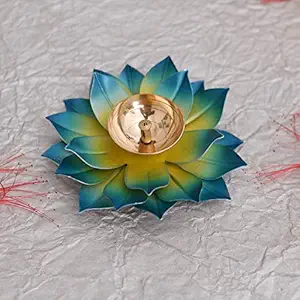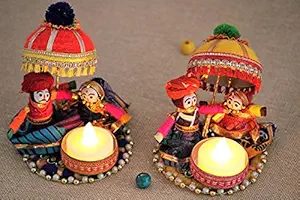પંખીડા રે ઊડી ને જાજો પાવાગઢ રે.. (2)
મહાકાળી ને જય ને કેજો ગરબે રમે રે..
મારી કાલકા મા ને જય ને કેજો ગરબે ઘૂમે રે...
પંખીડા ઊડી ને જાજો...
પંખીડા ઓહો પંખીડા, પંખીડા ઓહો પંખીડા
હે ઓલ્યા ગામ ના... ઓલ્યા ગામ ના... ઓલ્યા ગામ ના હે ઓલ્યા ગામ ના...
ઓલ્યા ગામ ના સુથારી વિરાઁ વેળા આવો રે વિરાઁ વેળા આવો રે..
મારી મહાકાળી ને માટે રૂડો બજોઠ લાવો રે,
મારી કાલકા મા ને કાજ રૂડો બજોઠ લાવો રે...
સારું લાવો સુંદર લાવો વેળા આવો રે.. (2)
મહાકાળી ને જાય ને કેજો ગરબે રમે રે..
મારી કાલકા મા ને જાય ને કેજો ગરબે રમે રે..
પંખીડા ઓહો પંખીડા, પંખીડા પંખીડા હે..
ઓલ્યા ગામ ના, ઓલ્યા ગામ ના, ઓલ્યા ગામ ના ઓલ્યા ગામ ના
હે ઓલ્યા ગામ ના, મણિયારા વિરાઁ વેળા આવો રે.. વિરાઁ વેળા આવો રે..
હે મારી મહાકાળી ની માટે રૂડો ચૂડલો લાવો રે..
મારી કાલકા મા ને કાજ રૂડો ચૂડલો લાવો રે..
હે સારું લાવો સુંદર લાવો વેળા આવો રે.. (2)
મહાકાળી ને જાય ને કેજો ગરબે રમે રે..
કાલકા મા ને જાય ને કેજો ગરબે રમે રે..
પંખીડા ઓહો પંખીડા, પંખીડા ઓહો પંખીડા
હે ઓલ્યા ગામ ના, ઓલ્યા ગામ ના, ઓલ્યા ગામ ના, ઓલ્યા ગામ ના
હે ઓલ્યા ગામ ના સોનિદા વિરાઁ વેળા આવો રે.. વિરાઁ વેળા આવો રે..
મારી મહાકાળી ની માટે રૂડા જાંજર લાવો રે
મારી કાલકા મા ને કાજ રૂડા જાંજર લાવો રે...
સારું લાવો સુંદર લાવો વેળા આવો રે.. (2)
મહાકાળી ને જાય ને કેજો ગરબે રમે રે..
કાલકા મા ને જાય ને કેજો ગરબે રમે રે..
પંખીડા ઓહો પંખીડા, પંખીડા ઓહો
હે ઓલ્યા ગામ ના, ઓલ્યા ગામ ના, ઓલ્યા ગામ ના, ઓલ્યા ગામ ના
ઓલ્યા ગામ ના દોશીદા વિરાઁ વેળા આવો રે.. વિરાઁ વેળા આવો રે..
મારી મહાકાળી ને માટે રૂડી ચુંદડી લાવો રે..
મારી કાલકા મા ને કાજ રૂડી ચુંદડી લાવો રે..
સારી લાવો સુંદર લાવો વેળા આવો રે.. (2)
મહાકાળી ને જાય ને કેજો ગરબે રમે રે..
કાલકા મા ને જાય ને કેજો ગરબે રમે રે..
પંખીડા ઓહો પંખીડા, પંખીડા ઓહો
હે ઓલ્યા ગામ ના, ઓલ્યા ગામ ના, ઓલ્યા ગામ ના, ઓલ્યા ગામ ના,
હે ઓલ્યા ગામ ના કુંભારી વિરાઁ વેળા આવો રે... વિરાઁ વેળા આવો રે
મારી મહાકાળી ને રૂડો ગરબો લાવો રે..
મારી કાલકા મા ને કાજ રૂડો ગરબો લાવો રે..
સારું લાવો સુંદર લાવો વેળા આવો રે..
મહાકાળી ને જાય ને કેજો ગરબે રમે રે..
કાલકા મા ને જાય ને કેજો ગરબે રમે રે..
પંખીડા ઓહો પંખીડા, પંખીડા ઓહो
Overview of "Pankhida Re Udi Ne Jajo Pavagadh Re"
Title & Meaning
'Pankhida Re Udi Ne Jajo Pavagadh Re' is a Gujarati Garba song invoking the image of a bird flying towards the sacred temple of Pavagadh, symbolizing devotion and spiritual journey.
Artist & Recording Details
This Garba belongs to the traditional folk repertoire, often sung during Navratri in Gujarat; specific recording info is limited.
Genre & Occasion
This Garba is devotional / folk, performed especially during Navratri and in Mata Ambe / Mahakali worship contexts.
Language & Dialect
Lyrics are in Gujarati, using regional idioms and devotional terms familiar in rural and temple contexts.
Popularity & Versions
A popular Garba tune during Navratri, with multiple cover versions and video renditions, especially in communities around Pavagadh and temples of Ambe / Mahakali.
Lyrics Structure & Themes
Devotional Invocation
The song opens with invocation to Mahakali / Ambe, calling devotees to participate and bring offerings.
Repetitive Chorus
Repeated phrases like “Pankhida re udi ne jajo Pavagadh re” invite communal singing and memorability.
Imagery & Symbolism
Uses nature imagery (birds, cliffs, colors) to depict spiritual ascent and divine presence.
Community & Devotion
Strong emphasis on community gathering, shared ritual action (bring ‘rudo / ruddo’, adornments) as part of festival worship.
Emotional Resonance
The longing, reverence, and joy in the lyrics uplift devotees, creating connection to the sacred.
Musical & Performance Elements
Instrumentation & Rhythm
Traditional percussion (dhol, dholak), manjira, rhythmic claps underpin the Garba, giving energy to dance.
Tempo & Dynamics
Starts with moderate tempo, building into faster, more expressive choruses to match dance intensity.
Live vs Studio Renditions
Live performances often include audience interaction, longer intros/outros; studio versions more polished and concise.
Dance Cues & Movements
Steps include cyclic clapping, spins, footwork synchronized with lyric cues like ‘udi ne jajo’.
Audience Participation
Chorus and call-and-response portions invite audience to join in, increasing engagement.
Festival & Cultural Significance
Navratri Significance
A staple during Navratri; reinforces faith, memory of Pavagadh as a Shakti Peetha, and communal identity.
Landscape & Pilgrimage
Pavagadh mountain / temple is a pilgrimage site; the song evokes the journey, the sacred geography.
Preserving Folk Tradition
The Garba preserves local language, ritual forms, and festival customs across generations.
Emotional & Spiritual Uplift
Joy, devotion, surrender—important elements that uplift the devotee emotionally and spiritually.
How to Use & Share
Translations & Transliteration
Provide transliteration to help non-Gujarati speakers and diaspora follow along; translate key lines.
Audio / Video Embeds
Embed audio and video versions, ideally live temple performances, to engage visitors.
Printable Lyrics & PDF Downloads
Allow users to download lyrics (PDF), possibly with transliteration & meaning for personal use.
Performance Tips & Garba Nights
Tips for dance steps, pace, costume colors, best times to perform this Garba (e.g. nights near full moon).
SEO & Social Sharing Enhancements
Include meta description, keywords (Garba, Navratri, Pavagadh, Mahakali), social share buttons, and alt text on images for better indexing.
'Pankhida Re Udi Ne Jajo Pavagadh Re' is a Gujarati Garba song invoking the image of a bird flying towards the sacred temple of Pavagadh, symbolizing devotion and spiritual journey.
This Garba belongs to the traditional folk repertoire, often sung during Navratri in Gujarat; specific recording info is limited.
This Garba is devotional / folk, performed especially during Navratri and in Mata Ambe / Mahakali worship contexts.
Lyrics are in Gujarati, using regional idioms and devotional terms familiar in rural and temple contexts.
A popular Garba tune during Navratri, with multiple cover versions and video renditions, especially in communities around Pavagadh and temples of Ambe / Mahakali.
The song opens with invocation to Mahakali / Ambe, calling devotees to participate and bring offerings.
Repeated phrases like “Pankhida re udi ne jajo Pavagadh re” invite communal singing and memorability.
Uses nature imagery (birds, cliffs, colors) to depict spiritual ascent and divine presence.
Strong emphasis on community gathering, shared ritual action (bring ‘rudo / ruddo’, adornments) as part of festival worship.
The longing, reverence, and joy in the lyrics uplift devotees, creating connection to the sacred.
Traditional percussion (dhol, dholak), manjira, rhythmic claps underpin the Garba, giving energy to dance.
Starts with moderate tempo, building into faster, more expressive choruses to match dance intensity.
Live performances often include audience interaction, longer intros/outros; studio versions more polished and concise.
Steps include cyclic clapping, spins, footwork synchronized with lyric cues like ‘udi ne jajo’.
Chorus and call-and-response portions invite audience to join in, increasing engagement.
A staple during Navratri; reinforces faith, memory of Pavagadh as a Shakti Peetha, and communal identity.
Pavagadh mountain / temple is a pilgrimage site; the song evokes the journey, the sacred geography.
The Garba preserves local language, ritual forms, and festival customs across generations.
Joy, devotion, surrender—important elements that uplift the devotee emotionally and spiritually.
Provide transliteration to help non-Gujarati speakers and diaspora follow along; translate key lines.
Embed audio and video versions, ideally live temple performances, to engage visitors.
Allow users to download lyrics (PDF), possibly with transliteration & meaning for personal use.
Tips for dance steps, pace, costume colors, best times to perform this Garba (e.g. nights near full moon).
Include meta description, keywords (Garba, Navratri, Pavagadh, Mahakali), social share buttons, and alt text on images for better indexing.


